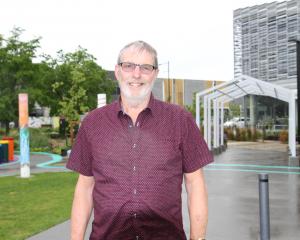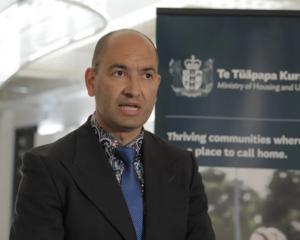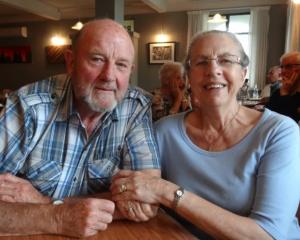Kiwi actor John Clarke has died during a hike in an Australian park. He was 68.

The comedian, known for his iconic role as Fred Dagg, died on Sunday while hiking in the Grampians National Park in Victoria, confirmed an ABC spokesperson to Sydney Morning Herald.
The spokesperson said he died of natural causes.
Clarke, who was born in Palmerston North but spent much of his time in Australia, became known for his comedy character Fred Dagg on stage and screen in the late '70s.
Clad in gumboots and a black singlet, Dagg was played with such conviction that to many New Zealanders, he was a real person.
But when Clarke relocated to Australia in search of creative greener pastures in the late 1970s, he took his cherished Kiwi icon with him.
He left with a sense of disillusionment stemming from a run-in with the New Zealand Broadcasting Corporation (NZBC).
"In a place the size of New Zealand there is only one game in town and if you are not allowed to do it, what can you do?'' Clarke said in a Listener interview in 1990.
``There's no structure to what I do and no school you can go to, to get a qualification. That's the challenge. You have to carve out different territories and stick different survey pegs in them.
``That was difficult to do in New Zealand where I dealt with directors who thought they were comic geniuses and regarded me as a hired hand.
``I have never had those problems in Australia.''
Other roles included voicing the character of Wal Footrot in the 1986 feature film, Footrot Flats: The Dog's Tale.
Although it has been years since New Zealanders have had a glimpse of Dagg, Clarke has kept popping up in different guises to remind his birth country that our loss was Australia's gain.
Anyone who saw him play the comic foil to Sam Neill's fallguy in the 1990 Australian film Death in Brunswick will testify to the universal appeal of his laid back style, deadpan delivery and comic timing.
After settling in Melbourne, Clarke became such a hit on Australian television that cross-dressing comic Barry Humphries described Clarke as "Australia's best humourist".
Clarke became known to many Australians for his five minute satirical spots on Channel Nine's Friday news programme A Current Affair since 1989.
He was also co-wrote ABCTV's The Fast Lane from 1983-85, as well as co-wrote and appeared in ABCTV's The Gillies Report from 1985-86.
Death In Brunswick aside, Clarke's film credits included Lonely Hearts (1981), Footrot Flats (1985), A Matter of Convenience (1987) and Blood Oath (1989).
He once said: "The danger that I might go to America and become a multi-millionaire sex symbol is minimal.''
Clarke was born in Palmerston North - "not Vienna'' as he quaintly put it - in 1948. He went to primary school in Palmerston North before going to Wellington's Scots College, after which he spent 14 months working on a shearing gang.
"My teachers mistook my indolence for rebellion and I was often caned. At one stage I held the world record. When I left secondary school I knew roughly what I knew when I left primary school plus how to shave," Clarke said.
In between time spent on a law degree and Batchelor of Arts - completing neither - he performed in satirical revues while at Victoria University in Wellington.
On the revues he worked with "some very talented people" including Ginette McDonald, Tom Scott and "a brilliantly funny young man, Paul Holmes".
After a year at the New Zealand Broadcasting Corporation (NZBC), a bored Clarke went to London.
"When I left my file said that I should not be employed under any circumstances whatsoever."
From 1971-73, he "swanned around" Europe and held a lot of itinerant jobs in England before returning convinced that New Zealand was ready for satirical innovation.
The Fred Dagg character was born and promulgated between 1973 and 1977. There were radio, TV and stage shows as well as record albums.
Although Fred Dagg became a runaway success, Clarke again fell foul of the NZBC.
"I was put off air once and prevented from making a series because someone said it didn't work.
"In the end I realised I would have to go to a country where I could explore more forms."
In 1996 National Radio's Kim Hill asked Clarke if he left New Zealand with ill feeling towards the NZBC.
"No, not at all,'' he said. "I had ill feelings before I left."
Clarke also published books for a living. Publications included A Complete Dagg in 1989, The Complete Book of Australian Verse in 1989 and Great Interviews of the 20th Century in 1990.
In 1973, he married Helen McDonald with whom he had two daughters.












